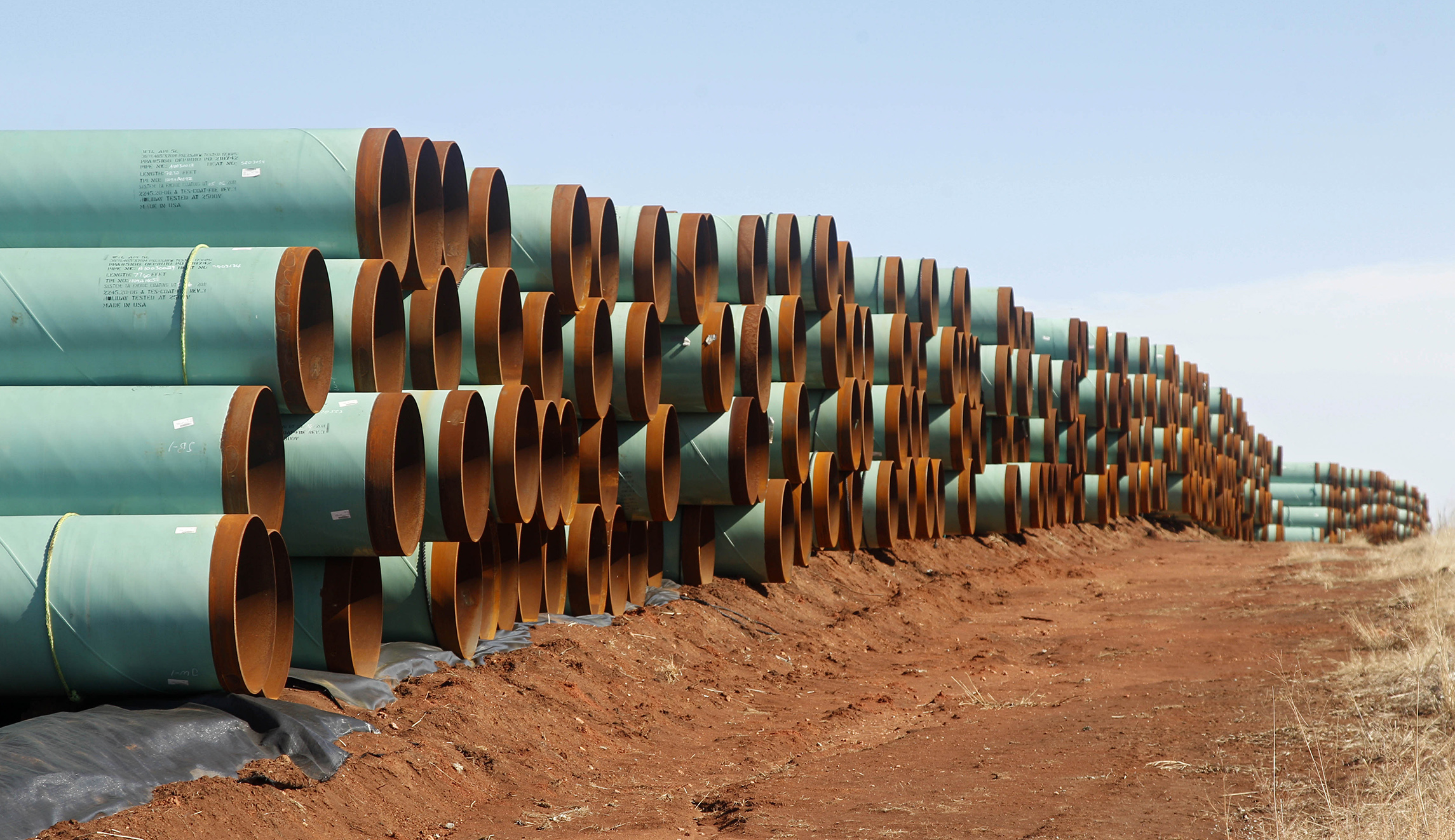The crunch at the gas pump exacerbated by the Russian invasion of Ukraine has led to calls in conservative circles to restart the controversial Keystone XL pipeline. But those calls may be nothing more than a pipe dream.
The cross-border, multibillion-dollar project fell victim to partisan politics in the early days of the Biden administration, when President Joe Biden, in one of his first acts, signed an executive order halting production of the pipeline stretching from the Canadian border through the Dakotas to refineries in the Gulf Coast.
Soaring gas prices raised hope the administration may revisit the decision to mothball the project. It gained even more traction on Monday when Alberta Premier Jason Kenney said the financial squeeze at pumps could be alleviated if the project was restarted.
“We could turn this around in less than a year,” he said. His comments came as crude prices surged to almost $140 a barrel.
KEYSTONE XL DEVELOPER TO PULL THE PLUG ON PIPELINE
But TC Energy, the Canadian developer behind the Keystone XL project, poured cold water on the idea of it ever getting back up and running on Tuesday, telling the Washington Examiner: “The Keystone XL pipeline project was terminated in June 2021 and will not proceed.”
The monumental decision to walk away from the $8 billion project came at a devastating cost to communities that pinned their hopes and investments on the success of the massive venture.
South Dakota hotel owner Laurie Cox, who bought a two-story hotel in Midland and housed pipeline workers before the project was pulled, said that although it’s exciting to think about the pipeline coming back, it’s hard not to see the writing on the wall.
She recently drove past some of the man camps built to accommodate thousands of skilled workers hired to build the pipeline. The mostly abandoned work sites left little hope of a comeback.

Cox told the Washington Examiner that two work camps are “barren.”
“The man camp outside of Philip still has a few trailers, but it’s as dead as dead could be,” she said. “The pod stations appear to be abandoned. There’s nothing there.”
Cox said employees of Precision Pipeline came in September and removed heavy equipment from one of the sites, including all of the trailers.
Others, speaking on condition of anonymity because they are not authorized to discuss the sale, told the Washington Examiner parts were sold for 30% less than the asking price.
If Keystone XL were to restart, it would mean rehiring workers, buying back pricey equipment, setting up housing, dealing with environmentalists opposed to the drilling, and getting small businesses burned by Biden’s decision to agree to reinvest in virtual ghost towns.
Even if all of the obstacles were removed, it’s unlikely XL would do anything to ease the sticker shock many drivers currently see at the pumps.
The United States has slapped a list of sanctions on Russia in response to its unprovoked invasion of Ukraine but, until this week, had avoided targeting the country’s oil sector out of fear it would cause crude prices to spike. Biden’s announcement he would ban the import of Russian oil and gas did just that. However, the White House claims high gas prices are Russian President Vladimir Putin’s fault and could be brought down by gas companies should they choose to do so.

Russia is the world’s third-largest oil producer and is responsible for 10% of global supply, according to U.S. Energy Information Administration data.
Republicans have called on Biden to increase domestic oil production.
“The challenge is that President Biden still won’t say ‘yes’ to American energy because to replace that Russian oil is the real critical step,” House Republican Whip Steve Scalise told the Wall Street Journal. “The answer is right below our feet.”
CLICK HERE FOR MORE FROM THE WASHINGTON EXAMINER
The president, though, showed no signs of reversing course.
“This crisis is a stark reminder [that] to protect our economy over the long term, we have to become energy independent,” Biden said. “Loosening environmental regulations or pulling back clean energy investment won’t lower energy prices for families.”
